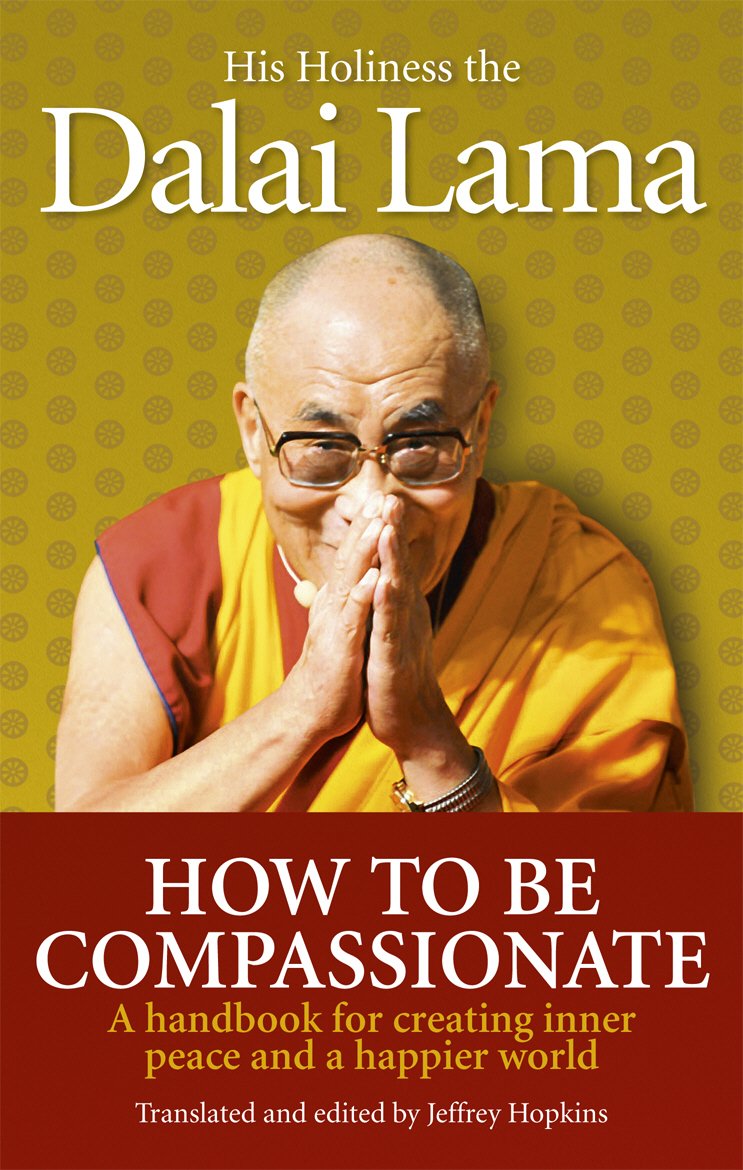Newly released
This book is new and will be uploaded as soon as it becomes available to us and if we secure the necessary publishing rights.

How to be compassionate: a handbook for creating inner peace and a happier world Book PDF
(0)
Author:
Dalai LamaNumber Of Reads:
53
Language:
English
Category:
ReligionsSection:
Pages:
122
Quality:
excellent
Views:
598
Quate
Review
Save
Share
Book Description
Our lives are in constant flux, which generates many predicaments. However, when these are faced with a calm and clear mind supported by spiritual practice, they can all be successfully resolved. By contrast, when our minds are clouded by hatred, selfishness, jealousy, and anger, we not only lose control, we lose our sense of judgment. At those wild moments, anything can happen. Our own destructive emotions pollute our outlook, making healthy living impossible. We need to cleanse our own internal perspective through the practice of wise compassion.
When you are caught up in a destructive emotion, you have lost one of your greatest assets: your independence. At least for the time being, your mind is disturbed, which weakens your capacity for sound judgment. In the grip of strong lust or hatred, you forget to analyze whether an action is suitable, and can even speak crazily and make wild gestures. Afterward, when that emotion fades, you often end up embarrassed and sorry for what you have done. This shows us that, while you had fallen under the influence of that strong emotion, your capacity to distinguish between good and bad, between suitable and unsuitable, was nowhere to be found.
Although unfavorable conditions need to be removed, when they are removed with hatred, the means of relief creates its own problems, because hatred, distorted by its bias, does not see the true situation. But unfavorable conditions can be removed through analysis—by examining the facts and discerning the actual situation—without any negative emotional side effects.
Only human beings can judge and reason; we understand consequences and think in the long term. Human beings also can develop infinite love, whereas animals have only limited forms of affection and love. However, when humans become angry, all this potential is lost. No enemy armed with mere weapons can undo these qualities, but anger can. It is the destroyer. When animals act out of lust or hatred, they do so temporarily or superficially; they are incapable of committing destruction in ever-increasing strength and variety. However, humans can think from a great many points of view. Because our intelligence is so effective, humans can achieve good and bad on a grand scale.
When we look deeply into such things, the blueprint for our actions can be found within the mind. Self-defeating attitudes arise not of their own accord but out of ignorance. Success, too, is found within ourselves. From self-discipline, self-awareness, and clear realization of the defects of anger and the positive effects of kindness, come happiness and peace. For instance, at present, you may be a person who gets easily irritated. However, with clear understanding and awareness, your irritability first can be undermined, and then replaced.
Dalai Lama
The Dalai Lama is the supreme religious leader of Tibetan Buddhists and until 1959 AD, the Dalai Lama represented the spiritual and worldly leadership in Tibet.
He is, of course, a Buddhist monk of the Gelugpa group, which was founded by Tsongkhapa (1357-1419).
The title of King of Tibet and the successor of Buddha in the eyes of his followers. The last to hold this title was the 14th Dalai Lama, born in Shanghai in 1935, when he was four years old when a group of lamas considered him to be the successor to the 13th Dalai Lama. It was then erected in Lhasa in 1940 and came to be considered a "living Buddha".
He was a pacifist. He won the Nobel Peace Prize in 1989 for his peaceful struggle for the liberation of Tibet. He has consistently advocated nonviolent policies, even in the face of extreme aggression. He also became the first Nobel Prize winner to be honored for his interest in global environmental problems.
Book Currently Unavailable
This book is currently unavailable for publication. We obtained it under a Creative Commons license, but the author or publisher has not granted permission to publish it.
Rate Now
5 Stars
4 Stars
3 Stars
2 Stars
1 Stars
How to be compassionate: a handbook for creating inner peace and a happier world Quotes
Top Rated
Latest
Quate
Be the first to leave a quote and earn 10 points
instead of 3
Comments
Be the first to leave a comment and earn 5 points
instead of 3